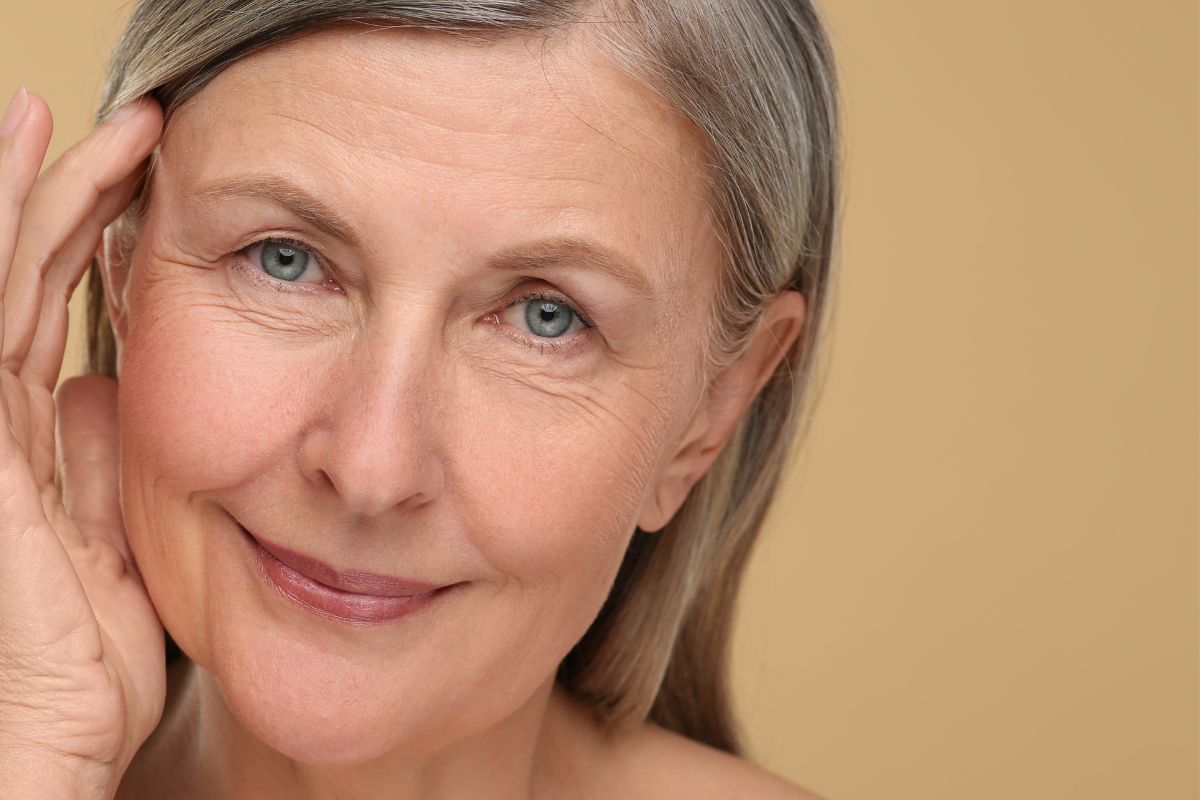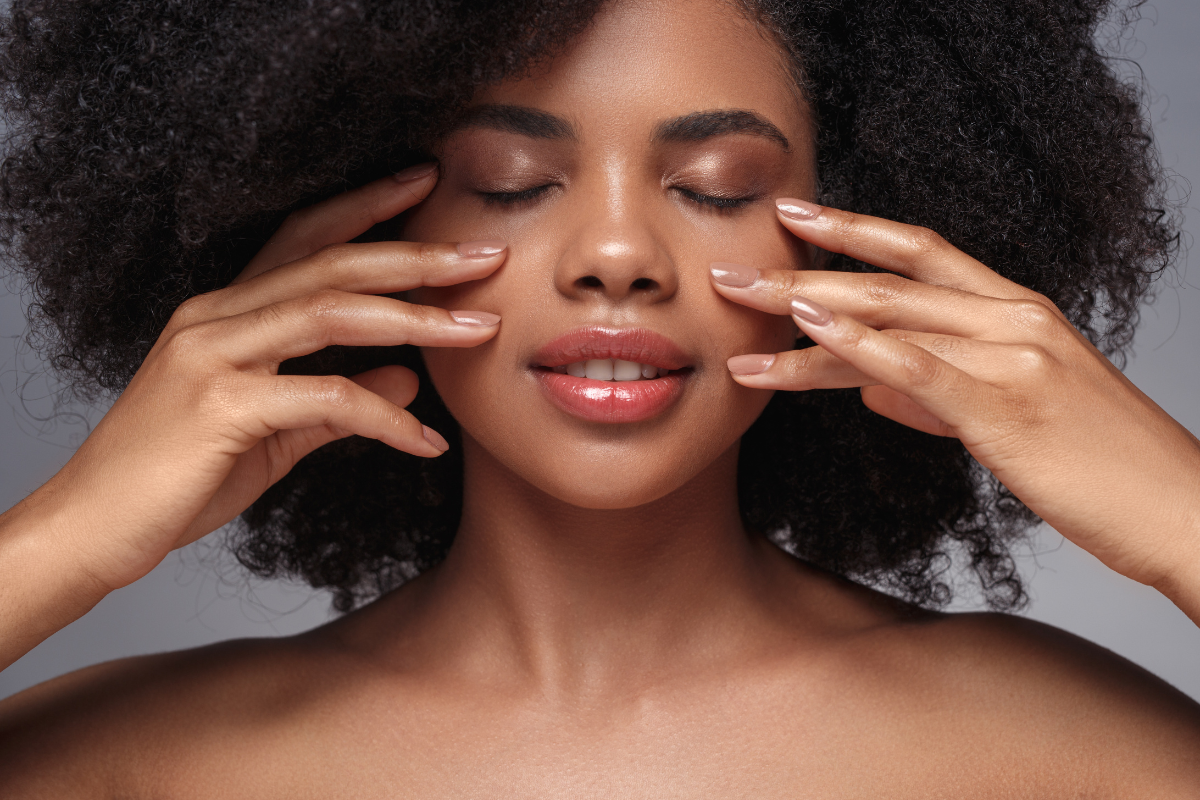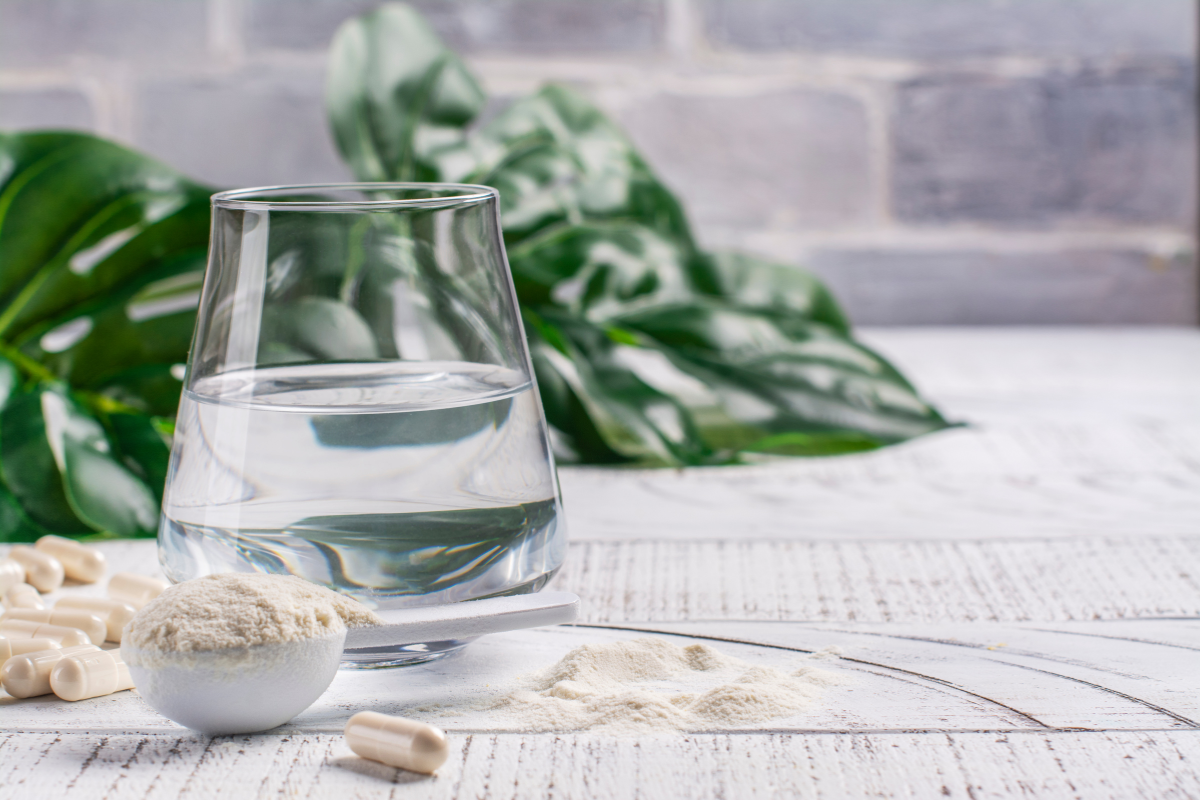Collagen, estrogen and your skin

Collagen, estrogen and your skin
If you shop for skin care products, you have probably come across collagen in many contexts. Collagen is a protein found in the body as:
- promotes a strong skeleton
- counteracts a leaky gut and is important for stomach and intestinal health
- maintains healthy joints
- contributes to skin elasticity
- contributes to healthy hair
As you age, your body naturally produces less and less collagen. This can be a contributing factor to dry skin and wrinkles. The benefits of collagen for beautiful skin are widely known - but the relationship between collagen and estrogen is not as well known. In reality, women's production of collagen is closely tied to their estrogen levels.
How are collagen and estrogen related?
What does estrogen have to do with your collagen production? Studies have shown that estrogen supports collagen production by binding to receptors in the skin called fibroblasts.
Fibroblasts are responsible for producing collagen - the protein that gives skin its strength and flexibility - and elastin - the protein that allows stretched skin to return to its original shape. While both collagen and elastin play a role in skin elasticity, collagen is perhaps the most critical, making up roughly 70-80% of your skin.
Collagen production throughout your life does not exactly mirror the rise and fall of estrogen levels, but the two are correlated. Since estrogen is a key component in activating fibroblasts, high levels of estrogen are linked to high collagen production. When your estrogen levels drop (such as when you go through menopause), your collagen production drops along with it.
How do collagen and estrogen levels change over time?
Just as your estrogen levels naturally change throughout your life, so do your collagen levels. Collagen and estrogen peak in the late 20s or early 30s. During perimenopause (the years before your period stops), your estrogen levels begin to drop. The closer you get to menopause - which means a full year without menstruation - the more dramatic the drop in estrogen becomes. In response to this, there is a dramatic loss of collagen that naturally occurs around this time as well.
Here's an overview of how collagen changes over the course of a woman's life:
- Women in their late 20s or early 30s tend to lose collagen at a rate of about 1% each year, as the fibroblasts in the skin become less active
- In the first five years after menopause, women lose a staggering 30% of their skin's collagen
- Postmenopausal women continue to lose about 2% of their skin's collagen each year thereafter
Skin care problems associated with low collagen and estrogen
Although collagen is found throughout the body, the effects of collagen are most visible on the skin of the face. This is because your face has a greater number of estrogen receptors than other parts of the body. Women with high collagen production may notice that their skin looks plump and youthful. However, women with low collagen production may experience problems such as:
- Dry skin
- Thinner skin
- Reduced elasticity
- Loose skin
- Wrinkles and fine lines
Women may assume that changes in their appearance are just a natural part of the aging process, not realizing that these skin care concerns are often directly linked to menopause. In fact, the collagen loss that occurs as women approach menopause is one of the most dramatic forms of skin aging caused by things happening inside the body.
Both collagen and estrogen levels drop as you age, and it's no coincidence. Right after menopause, many women report a sudden increase in the speed and intensity of skin aging. When collagen production is compromised with age, the body produces thinner and weaker collagen fibers.
Estrogen deficiency and your skin
An “estrogen-deficient skin” a condition characterized by changes in the skin accompanied by falling estrogen levels. Women with skin suffering from estrogen deficiency may notice that their skin becomes drier, duller and more sensitive. They may also notice visible wrinkles or deeper folds in the skin.
If you experience sudden changes in the appearance of your skin, it is important to ask yourself if estrogen deficiency and collagen loss could be the cause. This can help you determine if a collagen supplement may be in order to effectively treat your skin concerns.
Promote collagen production through collagen supplementation
Estrogen and collagen naturally decrease as we age - but that doesn't mean you have to accept being unhappy with the way your skin looks. Fortunately, there are skin care ingredients and products specifically designed to help address “estrogen-deficient skin” without the use of hormones. Taking 10,000 mg of collagen peptides with other great skin-boosting ingredients can help you improve your skin and prevent premature aging.
- Tags: Hud/Skin Kollagen/Collagen






